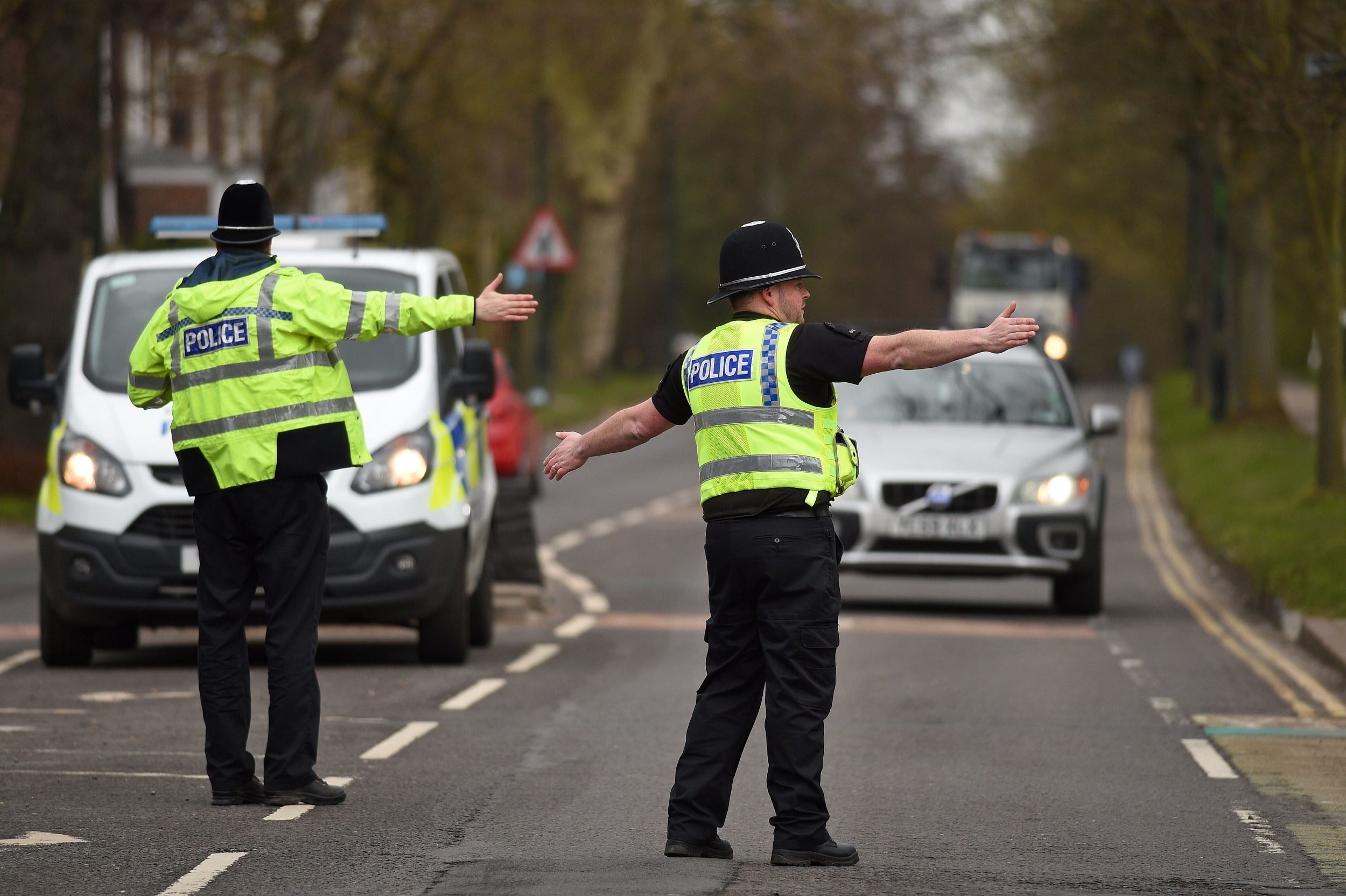Coronavirus lockdown leaves British police grappling with unprecedented powers
Analysis: Perceived heavy-handedness could permanently damage public relationship with police, Lizzie Dearden writes

When the UK’s coronavirus lockdown was imposed on 23 March, the laws to enforce the unprecedented restrictions did not exist.
The prime minister told the public that they must only leave home for limited purposes, including shopping for necessities and taking one form of exercise a day.
Boris Johnson added: “If you don’t follow the rules, the police will have the powers to enforce them, including through fines and dispersing gatherings.”
The announcement was as much of a surprise to rank-and-file police officers, who had not been told of the plans, as it was to the general public.
It sparked a deluge of calls to the 101 non-emergency number from members of the public seeking clarity on the restrictions – but police could not give it.
“We have had a number of calls from people seeking answers, but at this early stage, we are not able to answer all of your enquiries,” Humberside Police chief constable Lee Freeman admitted at the time.
Police were told to talk to the public about the rules and direct them to government guidance, but the law that allowed restrictions to be enforced did not become active for another three days.
In the interim, different police forces — which operate independently from each other and the government — took drastically different approaches.
Derbyshire Police drew criticism for sending up a drone to “shame” walkers in remote countryside, while other forces started roadblocks.
Asked whether he supported the measures, National Police Chiefs’ Council (NPCC) chair Martin Hewitt said regional forces were “trying to work out what they can do best to help this national fight against the virus”.
Three days later, the law was published. But confusion deepened when the Health Protection Regulations 2020 stopped short of the government guidance.
The law did not stipulate how many times people could exercise a day or define “essential travel”.
Instead, it allowed an extremely broad interpretation of restrictions, saying “no person may leave the place where they are living without reasonable excuse”.
Police officers were sent out to enforce the legislation with just a briefing from a sergeant at the start of their shifts and written guidance.
It is unsurprising that in these unprecedented circumstances, some individuals appear to have made use of their new powers to punish lockdown breaches with arrests and fines.
But amid a mounting backlash over the weekend, Mr Hewitt wrote to the chiefs of 43 forces in England and Wales stressing that enforcement should be a last resort after officers “engage, explain and encourage” the public to comply voluntarily with restrictions.
After a slew of negative media stories about alleged excesses, police leaders fear that relations with the public and the treasured model of policing by consent could be damaged.
It is hoped that as national guidance on how to implement the law beds in, inconsistencies in different parts of Britain will be ironed out.
Many forces have not yet issued any coronavirus-related fines or made arrests, and the vast majority of people are believed to be complying with restrictions.
Official modelling carried out in February, before the lockdown had been decided upon, said that although riots were not expected, “excessive” police actions could worsen the risk.
“Police actions should as far as possible be focused on dialogue and facilitation of legitimate public needs,” an advisory body said, calling for officers to “support rather than control” the public.
The long-term relationship between police and British citizenship now depends on that advice being borne out.
Join our commenting forum
Join thought-provoking conversations, follow other Independent readers and see their replies
Comments